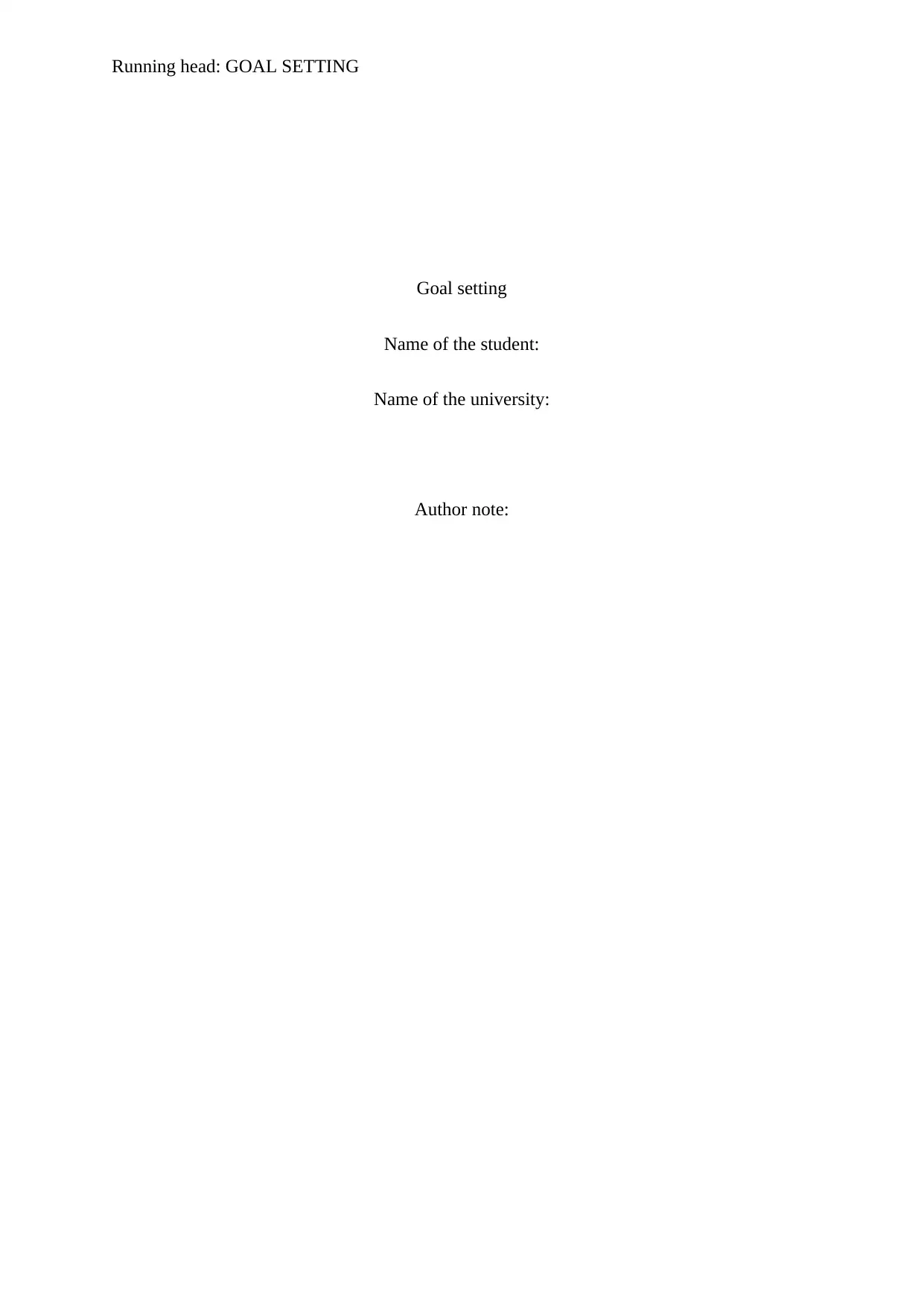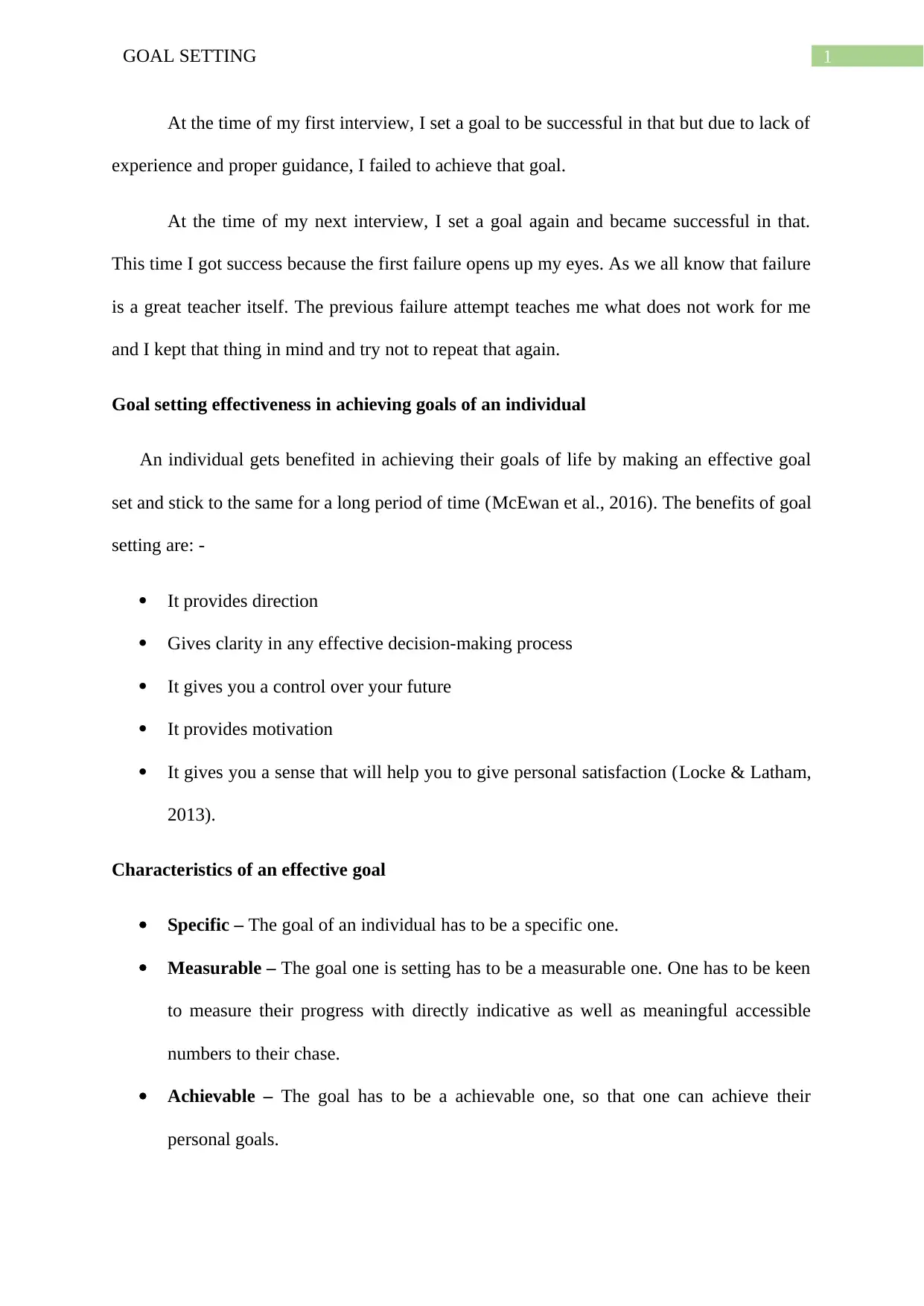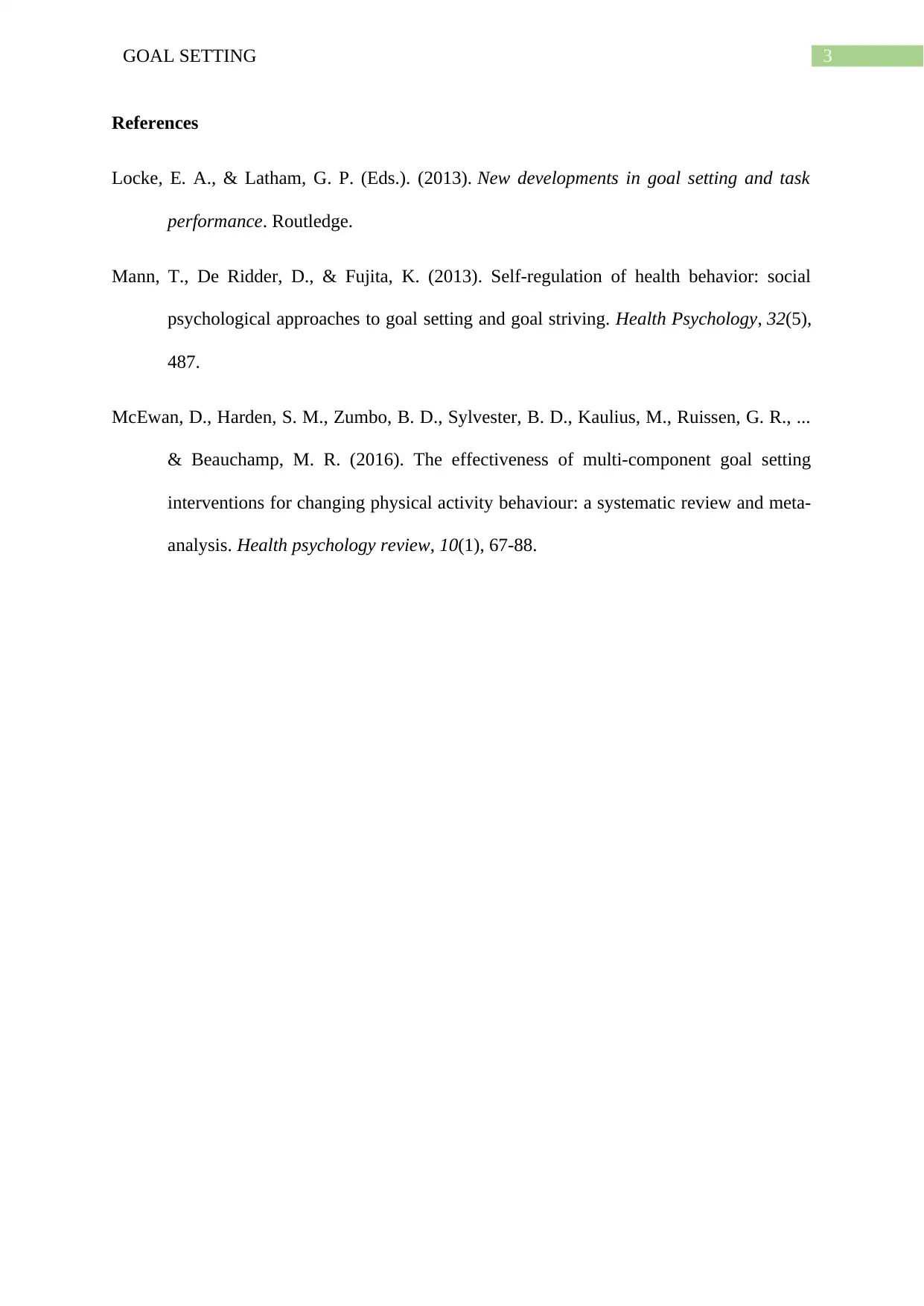Goal Setting Assignment: Achieving Goals in College Success - UMN
VerifiedAdded on 2023/04/08
|4
|582
|342
Homework Assignment
AI Summary
This assignment focuses on the importance of goal setting for personal and professional development, particularly within the context of college success. The student reflects on their past experiences with goal setting, including failures and successes, highlighting the lessons learned from each. The assignment then delves into the benefits of effective goal setting, such as providing direction, clarity in decision-making, motivation, and a sense of control over one's future. It outlines the characteristics of an effective goal (specific, measurable, achievable, realistic, and time-oriented) and differentiates between short-term, mid-term, and long-term goals. The student provides examples of each type of goal, demonstrating an understanding of how to apply these concepts to their own life. The assignment concludes with a list of references supporting the concepts discussed. This assignment is a valuable resource for students seeking to improve their goal-setting skills and achieve their academic and personal aspirations.
1 out of 4











![[object Object]](/_next/static/media/star-bottom.7253800d.svg)